Election splits over Brexit revealed in Facebook groups
- Published

As the UK gears up for a December general election, divisions are becoming clear in some of the largest and most active Brexit-focused Facebook groups.
There are clear splits in anti-Brexit groups over which opposition party to back. Meanwhile, pro-Brexit groups are relatively more united in their support for the Conservatives.
The BBC has gained access to some of the biggest pro- and anti-Brexit groups - which could reveal key election fault lines.
What are Facebook groups?
We examined chatter over the last 24 hours, in large open Facebook groups as well as in "closed" or private groups - ones where you have to be accepted by administrators in order to view posts.
Even the private groups have thousands or tens of thousands of members and fill up with hundreds of posts each day.
A recent BBC analysis found several of the most popular and influential closed Facebook groups about Brexit are filled with violent language including death threats aimed at individual MPs.
Now the election has been called, these groups - both open and closed - have turned to discussion of the election and, in particular, tactical voting: people working out who to vote for in order to either stop Brexit or ensure it happens.

A post in an anti-Brexit group with 30,000 members
What's happening in pro-Remain groups?
The big anti-Brexit groups broadly reflect what we see in the polls - Remainers are deeply split among the opposition parties.
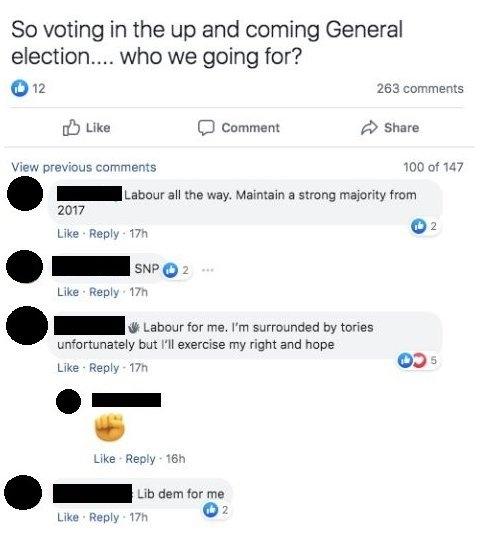
Remainers on Facebook are split
The Liberal Democrats and the SNP want to cancel Brexit, while Labour are pledging to hold a referendum with Remain as an option.
The question for the hardcore anti-Brexit activists is, should they simply vote for their preferred party, or vote tactically for whoever is best placed to stop the Conservatives?
In many pro-EU Facebook groups, fractious discussions are breaking down along party lines.
Labour supporters in these groups tend to be very critical of the Liberal Democrats, their record in the 2010-2015 coalition government, and leader Jo Swinson.
Meanwhile many Lib Dem supporters express strong dislike of Jeremy Corbyn, and accuse him of half-heartedly opposing Brexit in the 2016 referendum campaign and ever since.
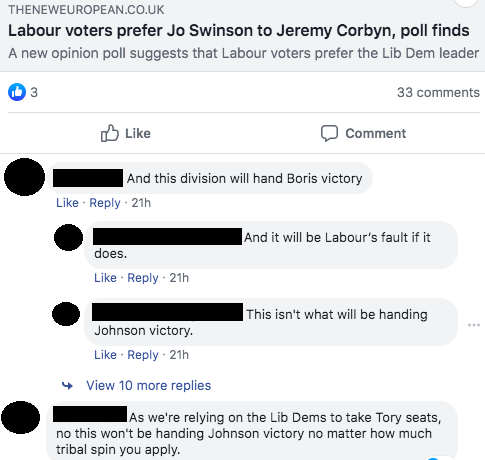
What about Brexit supporters?
In the pro-Brexit Facebook groups we examined there are also divisions but they don't seem quite as intense - even as they are sceptical of the current deal, many Brexit Party supporters seem open to voting Conservative in order to ensure Brexit happens.
This Nigel Farage meme - oddly, in the form of a mocked-up Guardian headline - seems to paraphrase previous comments in favour of a pact with the Conservatives - though Johnson's party has rejected a formal arrangement.:
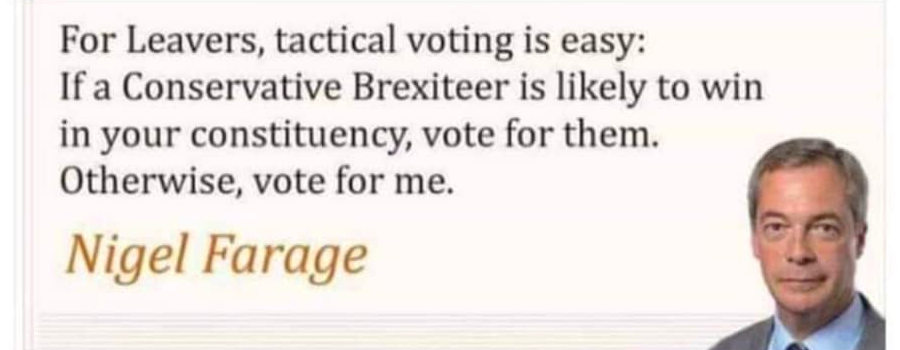
Brexiteers are sharing this mock newspaper headline to support tactical voting
There is significant support for the Conservatives in the pro-Brexit Facebook groups, with many Brexit Party supporters pledging to hold their noses and vote for the Tories even though they would rather leave the EU with out a deal.
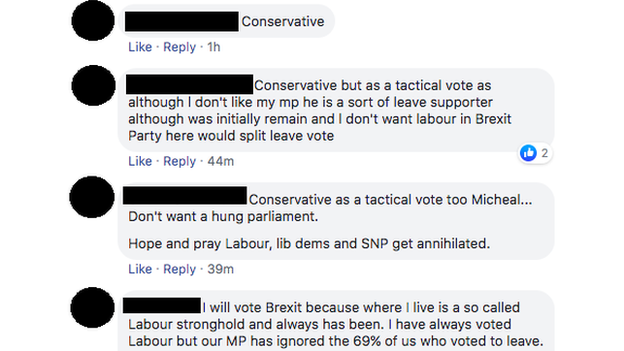
But not everyone is swinging behind the prime minister. Others are sticking with Farage's party - which could be a big problem for Johnson if it happens on a large scale in six weeks' time.
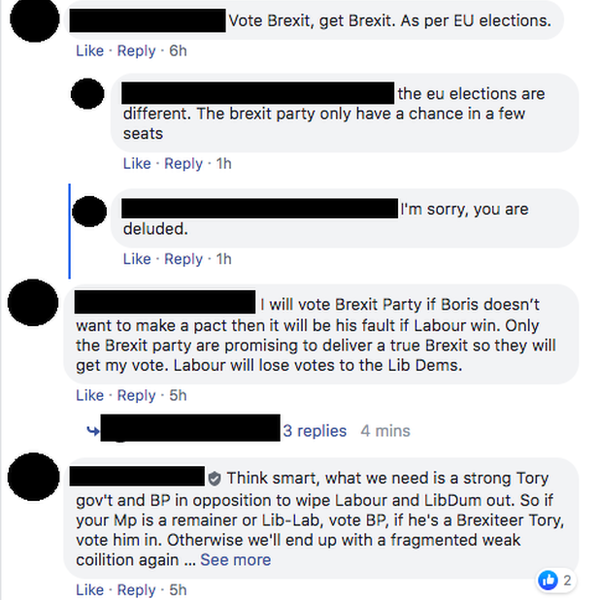
Others who want to leave the EU are sticking with the Brexit Party
Why does this matter?
Lots of Remainers and Leavers will vote based on their preferred Brexit outcome rather than just picking the party they like the most. And activists on both sides have launched tools to help inform tactical voting.
Delving into Facebook groups can shed light on tactical voting trends which nationwide polls do not always reveal.
Of course looking at these highly partisan groups does not give a representative sample of the population - but it might give us an indication of the debates raging as we get closer to 12 December.
What did you think of this story? Email the BBC, external
Follow BBC Trending on Twitter @BBCtrending, external, and find us on Facebook, external. All our stories are at bbc.com/trending.